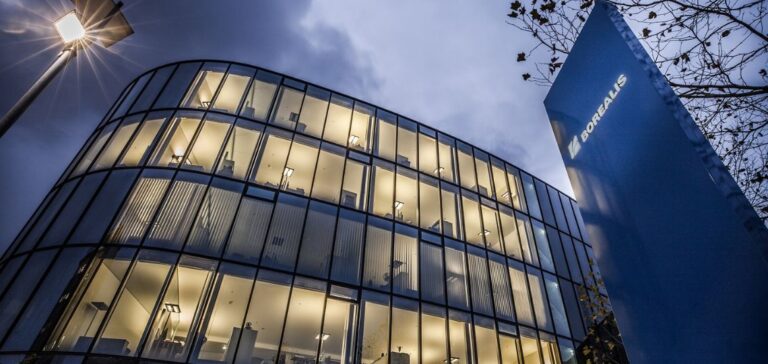Borealis and Axpo Nordic sign a power purchase agreement (PPA) for 130,000MWh of wind power per year. This will feed Borealis’ activities in Sweden. In this way, the European leader in polyolefin recycling has taken a new step in the decarbonization of its activities.
A 10-year agreement
Borealis enters into a partnership with Axpo Nordic to supply itself with renewable electricity. The electricity will come from the 60MW Hultema wind farm in Sweden for the next ten years. The PPA includes the annual supply of more than 130,000MWh of wind energy to the Borealis production facility in Stenungsund.
Cecilia Bergman, the main initiator of Axpo Nordic says:
“The continued expansion of wind farms allows industrial companies to source renewable electricity for their on-site facilities to reduce emissions and meet sustainability goals. We are pleased to serve as a conduit between generators and consumers, increasing revenues from renewable energy and enabling industries to become greener.”
Axpo will start supplying electricity to Borealis in 2024. Furthermore, this transaction confirms the attractiveness of the Swedish market for investors.
Accelerating decarbonization
For Borealis, the PPA with Axpo Nordic significantly increases the share of renewable energy used by the company. The renewable electricity will reduce indirect carbon dioxide emissions from its Swedish operations by approximately 10,000 tons per year. Wolfram Krenn, vice president of Borealis, details the company’s goals:
“We are very pleased to further accelerate our sustainable energy supply in Sweden through this new wind PPA with Axpo. This agreement brings us closer to our ultimate goal of having all the electricity we use generated by renewable energy by the end of the decade.”
The company’s goal is to increase the share of renewable energy in its electricity mix to 40% by 2025. In addition, Borealis aims to reach the 100% target by 2030.






















